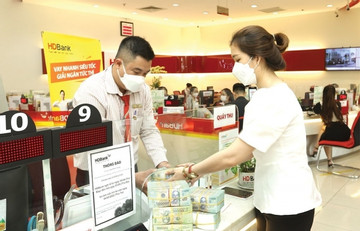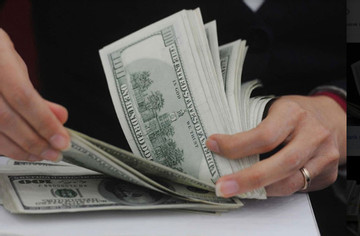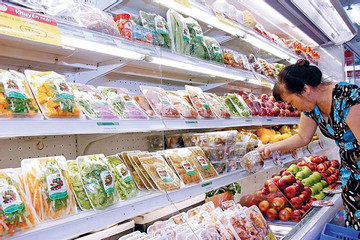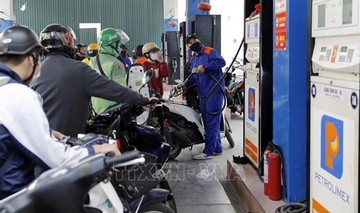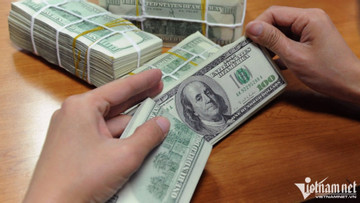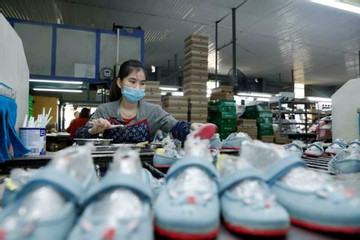- © Copyright of Vietnamnet Global.
- Tel: 024 3772 7988 Fax: (024) 37722734
- Email: [email protected]
inflation
Update news inflation
Vietnam’s CPI inches up in Q1
Vietnam’s consumer price index (CPI) in the year’s first quarter edged up around 4.3% year-on-year, showed official data.
Careful action required to curb inflation threat
Monetary experts are still mulling over whether Vietnam should soften or tighten policies to best suit current development circumstances.
SBV cuts interest rates, goes against trend in rest of world
The State Bank of Vietnam (SBV) has taken a daring move by slashing interest rates amid an upward trend in the world. If inflation remains low, Vietnam’s interest rates will be lower than those in developed economies.
Global inflation causes key Vietnamese exports to plunge
Between the beginning of the year and mid-February Vietnam’s exports decreased by 9.2% to US$37 billion against the same period from last year due to rising inflation in major markets globally.
Vietnam faces huge inflationary pressure in 2023: expert
The demand-pull and cost-push inflation will put pressure on the country's efforts to control inflation amid surging demand and strengthening of the US dollar which yields increased import prices.
Limited inflation pressures underpin positive projections
Vietnam has made a go of bringing inflation under control in 2022 thanks to the government’s great efforts to rein in market prices, with praise from various international organisations.
Inflationary pressure manageable for Vietnam in 2023: experts
The inflationary pressure on Vietnam in 2023 may not be high, said experts at a conference in Hanoi on January 4.
Vietnam's consumer price index up 3.15% in 2022
Vietnam recorded year-on-year growth of 3.15% in the 2022 consumer price index (CPI) while core inflation increased 2.59%, the General Statistics Office (GSO) said on December 29.
Vietnam responds well to global changes in 2022
2022 has been a year of uncertainty for the world, including Vietnam. However, flexible policies applied by Vietnam have helped it stabilize the exchange rate and inflation rate.
Finding the balance between growth and inflation
Prime Minister Pham Minh Chinh has released a special message for monetary policy in 2023, when the economy is expected to face challenges.
The bugbear called ‘inflation’
Earlier this year, many experts said inflation in Vietnam would increase as a result of global inflation, disruption of supply chains, fuel price increases and other factors.
Foreign experts hail Vietnam’s efforts to curb inflation
Foreign experts have appreciated Vietnam’s economic governance policies to help well control the impact of imported inflation, given increasing inflation in many countries around the world.
The situation is now different
Monetary policies made amid global uncertainties should be flexibly adopted, and their effectiveness greatly depends on the trust of people, enterprises and investors.
Investment & Planning Ministry explains inflation calculation method
National Assembly deputies have asked the Ministry of Planning and Investment (MPI) to clarify if the basket of goods used by GSO to calculate CPI can truly reflect the impact of increased prices of goods and services.
Wage hike needs to keep up with inflation control
Vietnam is set to increase the base wage from July 2023.
Fiscal policy needs to ‘share fire’ with monetary policy
Some friends of mine asked me the other day if they should buy USD to hoard after the forex trading band was raised by the State Bank of Vietnam (SBV) to 5 percent. In the black market, of course.
Business face obstacles as forex market heats up
The escalation of the US dollar reaching a record high of more than VND24,500 in recent times is anticipated to cause numerous challenges for Vietnamese firms due to the risk of exchange rate differences, according to insiders.
Adjustment of the VND's daily trading has certain effect on production
The State Bank of Vietnam decided to widen the USD/VND spot exchange rate band from +/-3 percent to +/-5 percent effective from October 17 continued to put pressure on the Vietnam dong to depreciate and the US dollar to appreciate.
Experts concerned about low CPI figure, inflation risks
Inflation risk is still present with high prices from all input factors, so the simultaneous use of both expansionary fiscal policy and expansionary monetary policy will create pressure on prices.
Inflation bites
Dropping global consumption is a challenge for various industries in Vietnam and local businesses might lay off staff or scale down operations.

